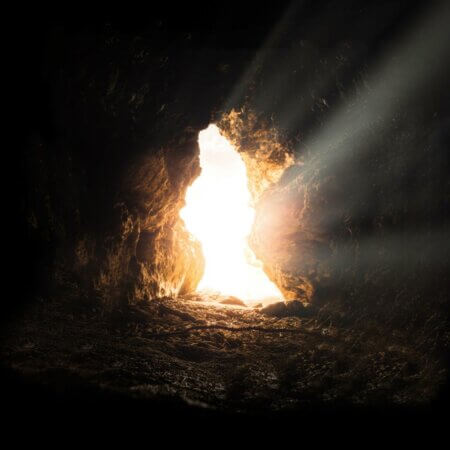What is Reformation Day? Exploring Its History, Significance, and Impact
500 years ago, a monk’s bold stand challenged the status quo, forever altering the course of religious history. Reformation Day, observed primarily by Protestant Christians on October 31, commemorates Martin Luther’s protest against the Catholic Church’s corruption.
This pivotal event ignited a movement that reshaped Christianity, leaving an enduring legacy on European society and culture. The Protestant Reformation challenged the authority of the Pope and the Catholic Church, emphasizing individual faith and the Bible as the sole source of religious truth.
In this article, we will explore the key figures, events, and theological ideas that shaped the Reformation, as well as its lasting impact on the world.
What is Reformation Day?
Reformation Day is a remembrance of those watershed moments in the history of the church. It honors the public act of Martin Luther when he posted his 95 Theses list of arguments against certain practices of the Catholic Church. On this day, Protestantism was born, and Christianity’s values were revitalized.
Reformation Day has its origins in the 16th century. In 1517, Martin Luther spearheaded a movement against perceived abuses within the Catholic Church. His call for reform led to a significant movement in Western Christianity: debates arose, schisms occurred, and new denominations eventually emerged.
The Key Event: Martin Luther and His 95 Theses
Who was Martin Luther?
Martin Luther was a professor, an Augustinian monk, and a religious reformer who became the central figure in the Protestant Reformation. Firm in his strong views about salvation and church practice, it was in these regards that Luther’s faith and scriptural commitments led him to challenge the Catholic Church and ultimately transform Christianity.
The 95 Theses and What They Represented
Luther’s 95 Theses were points of controversy against the sale of indulgences, a practice of paying to lessen punishment for sins. These theses, which were posted on the door of the Wittenberg Castle Church, challenged the doctrine of the church regarding the mechanics of forgiveness and salvation. In so doing, this act by Luther emphasized the faith-based relationship with God and provided the catalyst for widespread discussion.
Reformation Sunday: Why is it Celebrated?
Many Protestant churches celebrate Reformation Sunday on the last Sunday in October to consider the Reformation’s impact on modern Christianity. It is a day to think about some of Protestants’ really important values and, again, a reminder of the Reformation’s impact on religious thought.
The Spread of Reformation Ideas
The ideas of Luther then spread rapidly across the expanse of Europe due to the existence of a printing press, which was able to convey pamphlets and translated scriptures to the largest group of masses. This spread also allowed individuals to explore their faith independently, breeding multiple Protestant movements.
Major Figures in the Protestant Reformation
It was the reformist movement that involved not only Martin Luther but also other reformers like John Calvin and Huldrych Zwingli. Each took distinct perspectives on the movement, with which diverging branches would define Protestantism at one time or another. Calvin emphasized predestination, whereas Zwingli spoke more about reforming the church under scripture alone.
Core Beliefs of the Protestant Reformation
The Reformation emphasized five core beliefs, known as the “Five Solas”:
- Sola Scriptura – Scripture alone is the authority.
- Sola Fide – Faith alone grants salvation.
- Sola Gratia – Salvation is by God’s grace alone.
- Solus Christus – Christ alone is the mediator.
- Soli Deo Gloria – Glory to God alone.
These beliefs distinguished Protestant teachings from those of the Catholic Church, emphasizing individual faith and the Bible’s authority.
The Impact of the Reformation on Christianity
The Protestant Reformation produced many changes in the way Christians worship, and it also yielded a number of denominations: Lutheranism, Calvinism, and Anglicanism. This variety of worship styles and ideas redeveloped Christendom and reverberated throughout religious practices even to this day.
Reformation Day Traditions and Observances
This is largely celebrated in both Germany and the U.S. through church services, historical reenactment events of the occurrence, and academic events. While it is not a national holiday everywhere, it does hold special significance in Protestant regions.
The Role of the Printing Press in Reformation Day
The printing press gave the ideas of Luther’s wings of fire. For the very first time in the history of humankind, religious tracts, and the Bible in their vernacular language gained entrance to the public sphere. It was this technological step that transformed the Theses written by Luther into a mass movement.
Reformation appeals to the minds of the people today because it holds an ideal belief in equality, personal responsibility, and spirituality free from dependence on external sources. It is the era that underwent all forms of resistance. Many reformers went through serious suffering due to belief. Despite all these difficulties, the Reformation survived because it had deep convictions.
May the spirit of the Reformation continue to ignite hearts and minds, inspiring us to be agents of positive change.
Check also church anniversary ideas for meaningful milestones.










